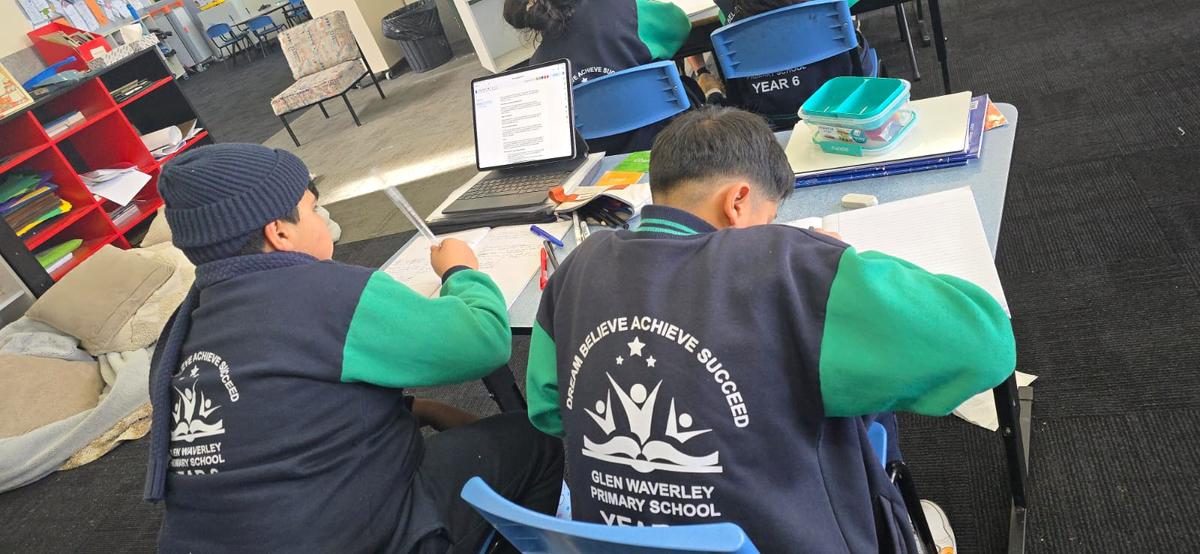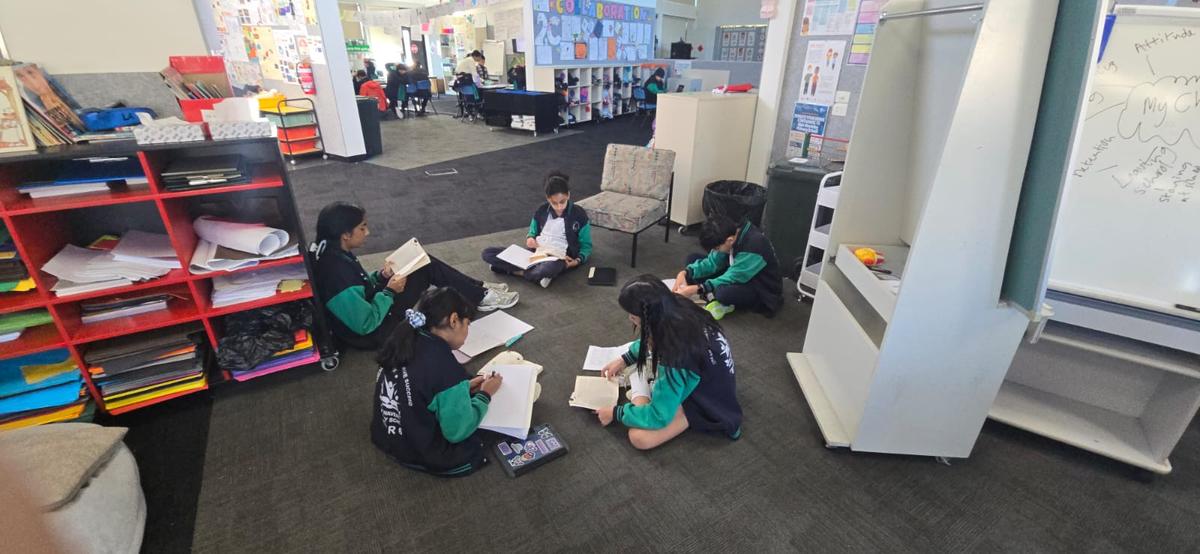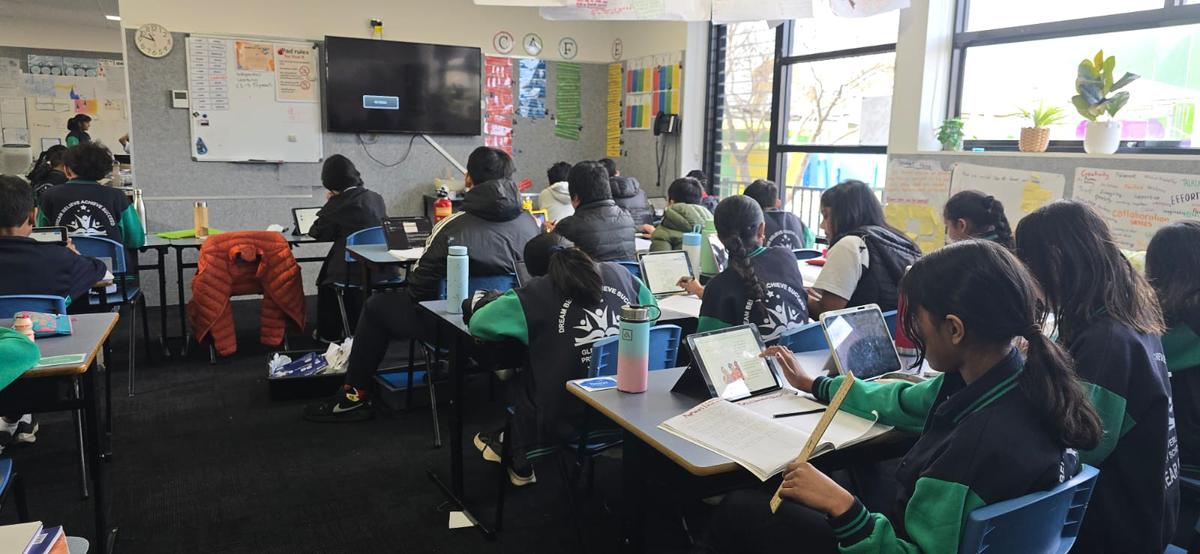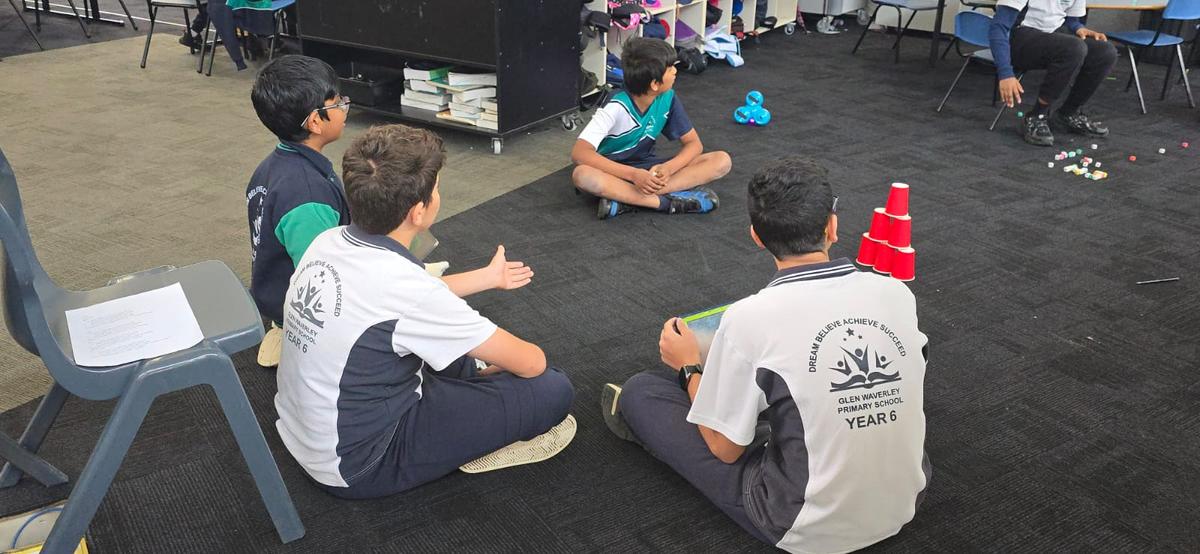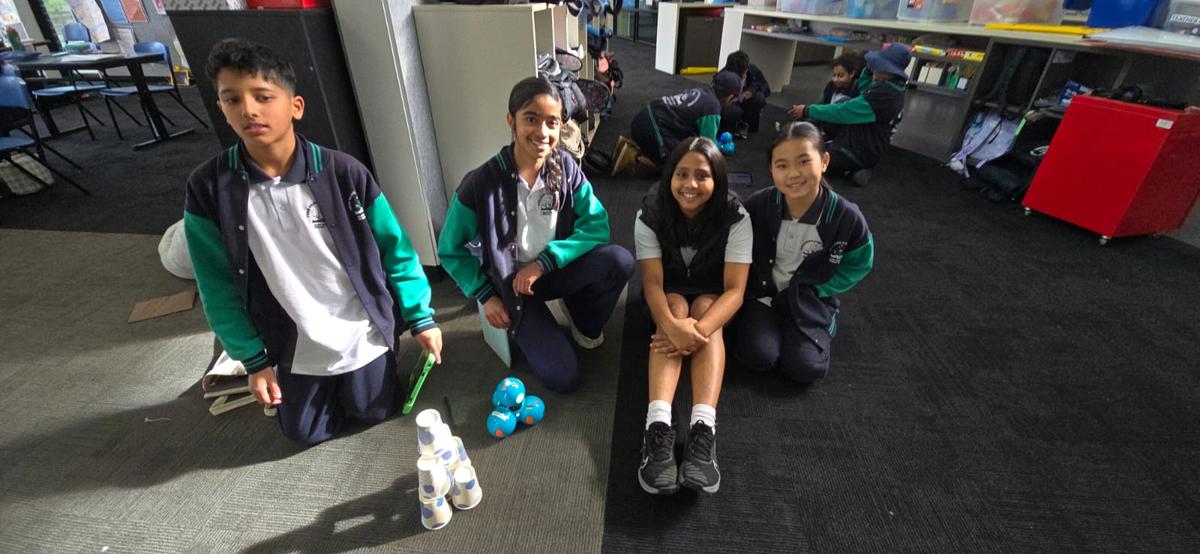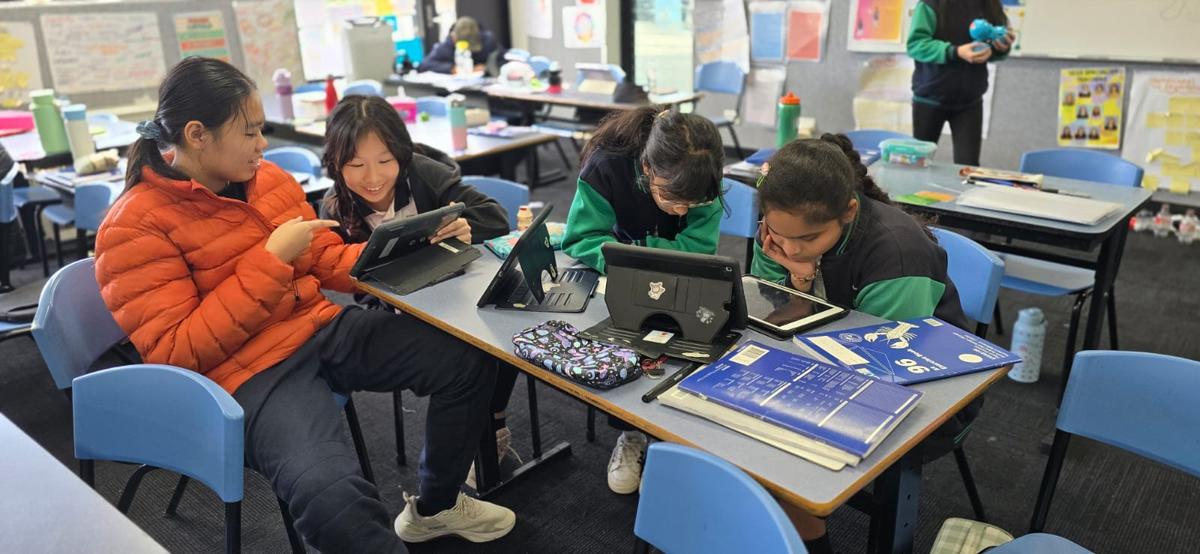Term 3 Level 6 Newsletter 202
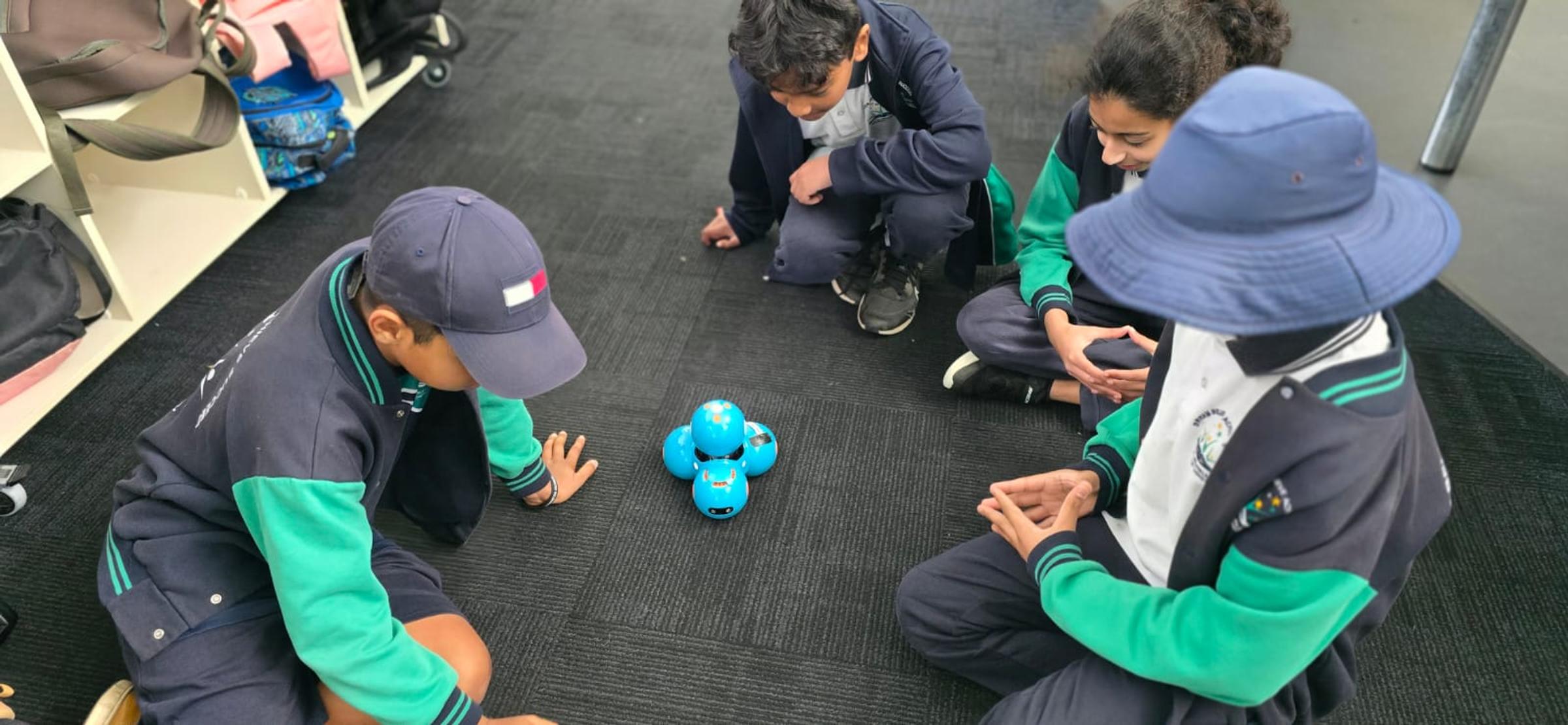
Reading
During Term Three, learners will continue to engage in Literature Circles, working in small groups to explore novels from a range of different genres. Each group will read a selected text, providing students with the opportunity to take ownership of their reading and collaborate meaningfully with their peers. As they rotate through roles such as the character tracker and figurative frog (finding and interpreting figurative language), they will continue building on the reading strategies developed in Semester One. These include making inferences, summarising, expanding vocabulary and analysing character development. Literature circles will continue to create great opportunities for rich discussion, building ownership of their comprehension of the text, and expanding the ideas of others.
Reading Key Vocabulary:
Inference, summarising, main idea, theme, character, comprehension, vocabulary, prediction, perspective
Writing
During Term Three, students will deepen their understanding of memoirs and biographies. They will explore the structure, content, and language features of these text types, and create personal memoirs reflecting their own experiences. Students will develop their understanding of descriptive and figurative language, and ways they can engage their audience. They will transfer skills from narrative texts in Term One to create engaging texts. In addition, students will develop their research skills as they create biographies about significant individuals who have made an impact on others or the world around them. Connections will be made to Inquiry by focusing on the educational pathways of individuals, and the impacts these have on their lives.
Writing Key Vocabulary:
Memoir, biography, timeline, figurative language, synthesise, reference
How can you support your child’s English learning at home?
- Encourage your child to talk about their literature circle role, the shared text that they are reading, and the comprehension strategy they are focusing on.
- Encourage your child to read a variety of text types and genres.
- Share important or special memories and events in your own life, and people close to your family.
- Support your child to research significant individuals who are of interest to them, and share their findings with friends, family, and their class.
Mathematics
During Term Three in Mathematics, students will deepen their understanding of Number through an Exponents unit, learning to represent and evaluate numbers in exponent notation. They will strengthen their fluency around recalling powers of 2, 3, 5, and 10. Students will also develop an understanding of prime factorisation and its connection to the highest common factor and lowest common multiple; concepts they began exploring during an earlier Fractions unit. They will end the Exponents unit by learning to evaluate expressions containing exponents and the four operations.
Next, students will deepen their understanding of Algebra through an Equations unit, building upon their prior learning around pronumerals, variables, and simple algebraic expressions. During the unit, they will learn to solve and verify algebraic equations, through strategies such as substitution and manipulation of equations. Students will conclude the unit with a dive into the Cartesian plane and how it can be used to represent number sequences or patterns derived from equations.
Following this, students will begin their first Measurement subject of the year, through a Length unit that will focus on perimeter. They will learn strategies to effectively calculate the perimeter of a range of polygons and composite shapes, further solving problems involving unknown lengths. Students will conclude the unit by delving into the important features of a circle; the radius, diameter, circumference, and their relationship.
Lastly, Students will conclude the term with a combined Measurement and Space focus in an Angle Relationships unit. They will begin the unit by building an understanding of geometric language, notation, and conventions. Students will apply this knowledge to solve problems involving a range of angle relationships, such as complementary angles, supplementary angles and vertically opposite angles, and adjacent angles. They will extend their problem-solving by investigating angles formed when two or more lines are crossed by a transversal, including corresponding, alternative and consecutive interior and exterior angles.
Mathematics Key Vocabulary:
Exponent, prime factorisation, equation, substitution, Cartesian plane, perimeter, radius, diameter, circumference, angle, transversal.
How can you support your child’s Mathematics learning at home?
- Explore the use of exponents and powers in a range of contexts. For example, the powers of ten used to represent large numbers (e.g., speed of light) and small numbers (e.g. mass of elements).
- Relate length and perimeter to real-life situations, such as design, construction and architecture. How do these fields use length, perimetre, and other measurement concepts?
- Discuss the relationship between common variables, such as the positive relationship between time spent studying and exam scores, or the negative relationship between screen time and sleep quality.
- Identify and discuss angles within the environment. Ask your child if they notice certain types of angles and relationships.
Inquiry
Question: How does where I live affect my educational opportunities?
Global Goals:
4. Quality education
8. Decent work and economic growth
10. Reduced inequalities
During Term Three, learners will explore the Inquiry question, 'How does where I live affect my educational opportunities?'. They will investigate how factors such as geography, economy and social systems influence access to education in various communities across Australia and the world. Learners will compare educational settings and consider physical location and economic resources on its impact to educational opportunities among young people. Through this unit, learners will explore global and local inequalities in access to learning and critically reflect on ideas of fairness, privilege and equity. As their transfer of learning, they will propose actions or solutions to promote more inclusive and accessible education for all.
Inquiry Key Vocabulary:
Equity, education, opportunity, access, resources, systems.
How can you support your child’s Inquiry learning at home?
- Talk about your own schooling and what shaped your educational experiences.
- Watch a video or documentary together about education in other parts of Australia or the world.
- Discuss examples of how location can create challenges or advantages for students.
- Encourage conversations about fairness and how people can improve access to education.
Wellbeing
The Resilience Project
During Term Three, students will continue to participate in The Resilience Project which focuses on building students’ emotional literacy and wellbeing through the key principles of Gratitude, Empathy and Mindfulness (GEM). Through engaging classroom discussions, reflective journaling, and activities that promote kindness and self-awareness, students are learning practical strategies to support their mental health and strengthen their resilience. Each week, we focus on a specific theme, such as recognising positive moments in our day or showing empathy towards others. Linking to real-life examples that students can apply at school and at home. Within The Resilience Project, we will focus on exploring students' understanding of emotional literacy through learning about happy hormones, including dopamine, endorphins, oxytocin, and serotonin. As well as exploring the importance of sharing emotions. Students will develop their understanding of the chemical response triggered by different emotions and will describe how emotions influence behaviour.
Cyber Safety Project
During Term Three, students will refine their understanding of the critical values of responsibility, integrity, strength, and empathy, to foster positive online behaviours and interactions within students by nurturing responsible digital citizens. This term will focus on the theme of strength, developing students’ ability to think critically about ways digital content may have been manipulated before being shared online. Focusing on recognizing ways games and apps capture our attention and strategies to take control.
Stand Up Project
During Term Three, students will continue to lead The Stand Up Project, a powerful initiative focused on building a culture of respect, inclusion, and standing up against bullying. In the classroom, we’ve been unpacking what it means to be an upstander, learning how to recognise unfair or harmful behaviour, and practising ways to respond safely and supportively. Through role-plays, group discussions, and personal reflection, students are developing the confidence to speak up, show leadership, and foster a more inclusive environment.
If you wish to support your child’s learning in Wellbeing this term, you can:
- Ensure that your child’s schedule outside of school has a healthy balance of academics, exercise and leisure.
- Conduct daily wellbeing check-ins with your child. Ask them what GEM chat prompts they used at school and see how your family would respond.
- As a family, practice some of the brain break and mindfulness activities that your child has learned at school, such as guided meditation, human knot game and so forth.

